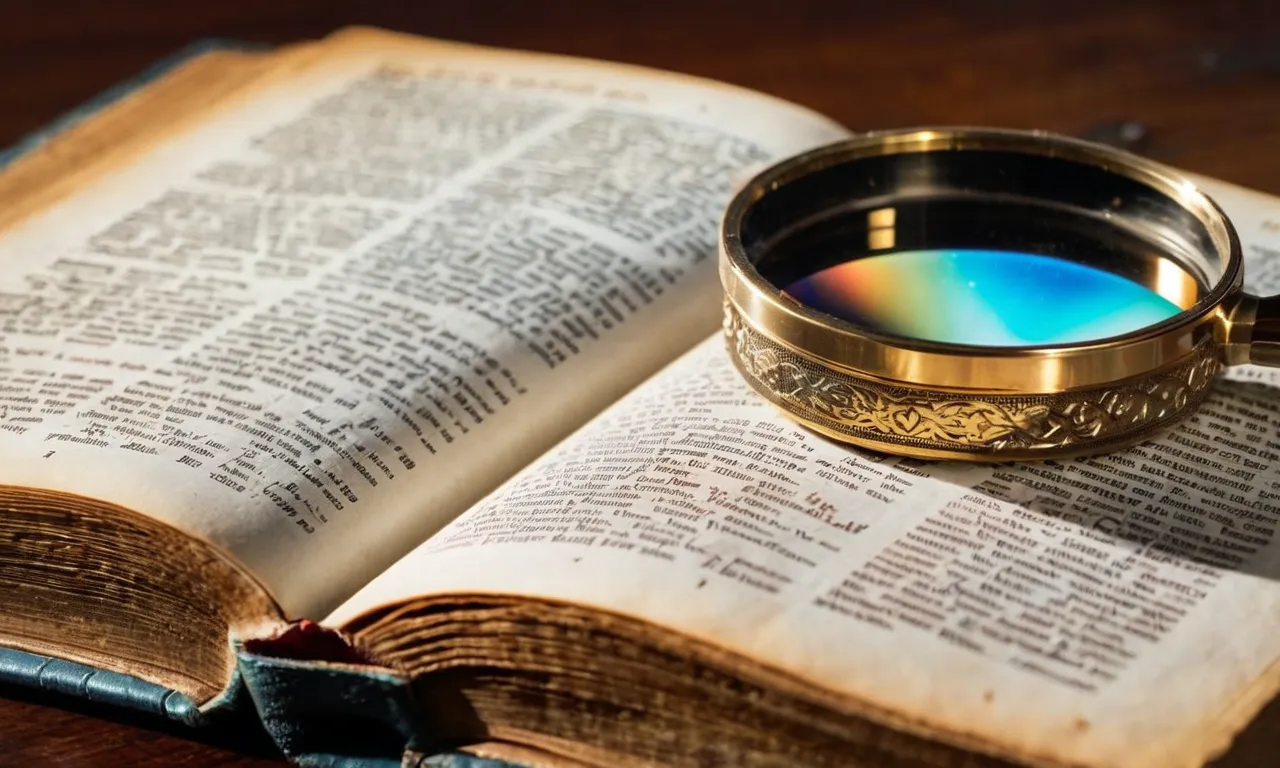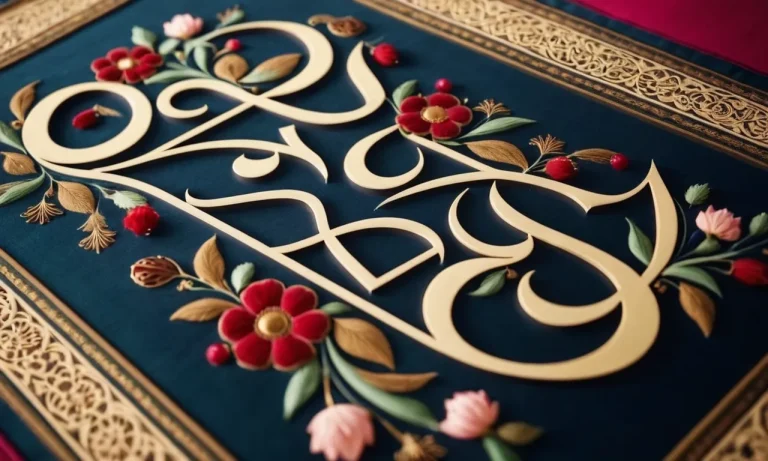Who Is Jacob In The Bible? A Complete Overview
The story of Jacob in the Bible is a captivating one filled with intrigue, deception, and personal growth. Jacob was one of the most important patriarchs in the Old Testament, but his life was far from simple.
If you’re looking for a quick answer, here it is: Jacob was the younger twin son of Isaac and Rebekah, grandson of Abraham. After tricking his brother Esau out of his birthright, Jacob fled to his uncle Laban’s house, married Laban’s daughters Leah and Rachel, and fathered 12 sons who became the ancestors of the 12 tribes of Israel.
After wrestling with God, Jacob’s name was changed to Israel, meaning ‘one who struggles with God’. Jacob plays a central role in many famous Bible stories.
In this comprehensive article, we will provide an in-depth look at the story of Jacob. We will explore his origins, the trickery and deception between him and his brother Esau, his time living with his uncle Laban, his reconciliation with Esau, his name change to Israel, and the significance of his 12 sons.
Whether you are looking for a refresher on this prominent biblical figure or diving into his story for the first time, this article will provide you with a complete overview of who Jacob was and why he is such an integral character in the Old Testament.
Jacob’s Origins and Early Life
Jacob and Esau as twin sons of Isaac and Rebekah
Jacob and Esau were the twin sons of Isaac and Rebekah, born when Isaac was 60 years old (Genesis 25:24-26). Though twins, Jacob and Esau had very different appearances and personalities. Esau was born first and was red and hairy, a skillful hunter, while Jacob had smooth skin and stayed among the tents.
Even in the womb they struggled against each other, foreshadowing their conflicted relationship.
Jacob tricks Esau out of his birthright
As the older twin, Esau had the right of the firstborn son’s birthright. However, one day Jacob took advantage of Esau’s hunger after a hunting trip and tricked him into trading his birthright for a bowl of Jacob’s stew (Genesis 25:27-34).
This emphasizes Jacob’s more clever and manipulative nature compared to the impulsive Esau.
Jacob’s ladder dream and covenant with God
Fleeing from Esau’s anger over the stolen birthright, Jacob had a dream of a ladder/stairway extending from earth up to heaven, with angels ascending and descending on it. At the top was God himself, who confirmed the covenant promises of land, offspring and blessing made to Abraham and Isaac now applied to Jacob and his offspring (Genesis 28:10-15).
This dream at Bethel established Jacob’s destiny within God’s divine plan.
Jacob’s Life in Haran with Uncle Laban
Jacob marries Leah and Rachel
After fleeing from his brother Esau, Jacob arrived in Haran and met his uncle Laban. He fell in love with Laban’s younger daughter Rachel and agreed to work for Laban for 7 years in order to marry her.
However, on the wedding night Laban deceived Jacob and had him marry his older daughter Leah instead. After confronting Laban, Jacob was allowed to marry Rachel as well, in exchange for another 7 years of work (Genesis 29:1-30).
Jacob’s children and family life in Haran
Jacob had a large family while living in Haran for 20 years. Through his wives Leah and Rachel and their maidservants, he fathered 12 sons and at least one daughter. These 12 sons later became the ancestors of the 12 tribes of Israel.
Some of the most well-known sons included Joseph, Judah, Levi, and Benjamin (Genesis 29:31-30:24). Life in Haran was marked by marital strife between Jacob’s two wives, as well as competition over having children.
Jacob’s dealings with Laban
After working for Laban for over 20 years, Jacob sought to return to his homeland of Canaan. He had become very wealthy, with large flocks that Laban’s sons felt should have been theirs. Jacob sensed Laban’s sons were turning against him.
God instructed Jacob to return to Canaan, so Jacob set out secretly with his family and flocks without informing Laban (Genesis 31). However, Laban pursued Jacob and confronted him. They made a covenant together, agreeing not to cross into each other’s territory again.
Jacob then continued on safely back to Canaan.
Jacob’s Return to Canaan and Reconciliation with Esau
Jacob’s return to Canaan
After living in Haran for over 20 years, Jacob decided it was time to return to his homeland of Canaan. He gathered his large family and possessions and headed back. As Jacob approached Canaan, he became worried about confronting his brother Esau again.
Jacob had deceived Esau and stolen his blessing back in Canaan, and he was afraid Esau still harbored bitterness. To prepare for their meeting, Jacob sent messengers ahead to greet Esau and gauge his attitude. The messengers returned saying Esau was coming to meet Jacob with 400 men!
Jacob was terrified and prayed to God for protection. He also sent waves of gifts ahead to Esau, hoping to pacify him.
Jacob wrestles with God at Peniel
The night before meeting Esau, Jacob had a dramatic encounter with God. As he was left alone, a man wrestled with him until daybreak. Jacob realized this was no ordinary man, but God Himself in human form.
The man dislocated Jacob’s hip socket during the struggle, but Jacob still clung to Him, saying “I will not let you go unless you bless me” (Genesis 32:26). So the man blessed Jacob and changed his name to Israel, which means “struggles with God.”
Jacob named the place Peniel, meaning “face of God”, since he had seen God face to face. This encounter transformed Jacob spiritually and renewed his relationship with God.
Jacob and Esau meet and reconcile
The next day, the moment of truth came when Jacob saw Esau approaching with his men. Jacob went ahead of his family and bowed low seven times as he approached Esau. To Jacob’s surprise, Esau ran to meet him, embraced him warmly, and kissed him. The brothers wept with joy. Esau forgave Jacob completely.
He initially refused Jacob’s gifts, saying he already had plenty, but eventually accepted them as a sign of true reconciliation. What a beautiful picture of forgiveness and restoration! Jacob acknowledged God’s hand at work, telling Esau, “To see your face is like seeing the face of God” (Genesis 33:10).
The brothers parted in peace, with Esau returning to Seir and Jacob settling in Canaan.
Significance of Jacob’s 12 Sons
Jacob’s twelve sons became the ancestors of the twelve tribes of Israel, and their blessings contained prophetic information about their destinies. The twelve tribes played a key role in the history of the Israelites.
The 12 tribes of Israel
Jacob’s sons became the patriarchs of Israel’s twelve tribes: Reuben, Simeon, Levi, Judah, Zebulun, Issachar, Dan, Gad, Asher, Naphtali, Joseph, and Benjamin. Each tribe was allotted land in Canaan except Levi, which was set apart for religious duties.
The twelve tribes were named after Jacob’s sons to symbolize the continuation of God’s covenant. As God changed Jacob’s name to Israel, his sons were recognized as the children of Israel. The tribes inherited different blessings and curses from Jacob, which characterized their roles.
Destinies of key sons like Joseph, Judah, and Levi
Joseph received one of the longest blessings from Jacob, indicating his tribe’s future dominance. True to Jacob’s blessing, the tribe of Joseph split into two tribes descended from his sons Ephraim and Manasseh, and the half tribe of Ephraim became the most powerful group during the settlement of Canaan.
Jacob prophesied that Judah’s tribe would become the leader over other tribes. King David and eventually Jesus came from the tribe of Judah. The kingly line ruled over Israel and Judah for centuries.
The tribe of Levi was set apart by Jacob to become Israel’s priestly tribe. The Levites were responsible for the tabernacle and temple worship. Jacob cursed their anger and violence but blessed their faithfulness.
| Son | Blessing | Curse |
|---|---|---|
| Joseph | Dominance and power | |
| Judah | Kingship | |
| Levi | Priesthood | Anger and violence |
The prophecies and blessings given to the sons established the unique roles of the twelve tribes of Israel. Their various destinies characterized the history of Israel and the responsibilities God entrusted to each tribe.
Conclusion
In conclusion, Jacob lived a life that was full of conflict but also growth. While his early trickery caused family strife, through his trials and reconciliations Jacob emerged into the role of patriarch, fathering the 12 tribes of Israel.
His life story provides many valuable lessons, including the sovereignty of God in working through flawed individuals. Jacob’s prominence and his transformation into Israel cemented his status as a major biblical figure and ancestor of God’s chosen people.
Studying the ups and downs of his story provides deep insight into human nature and God’s faithful guidance over the ages.







